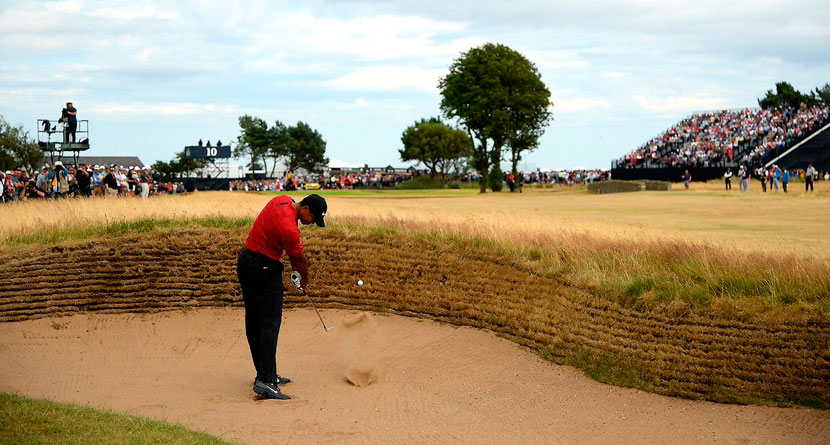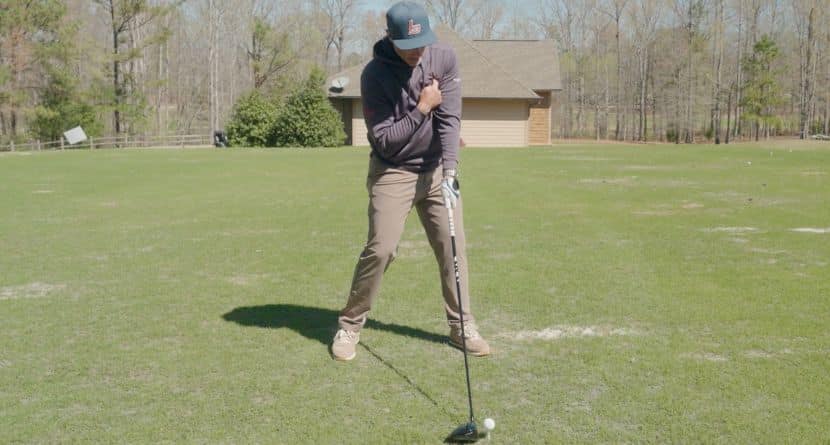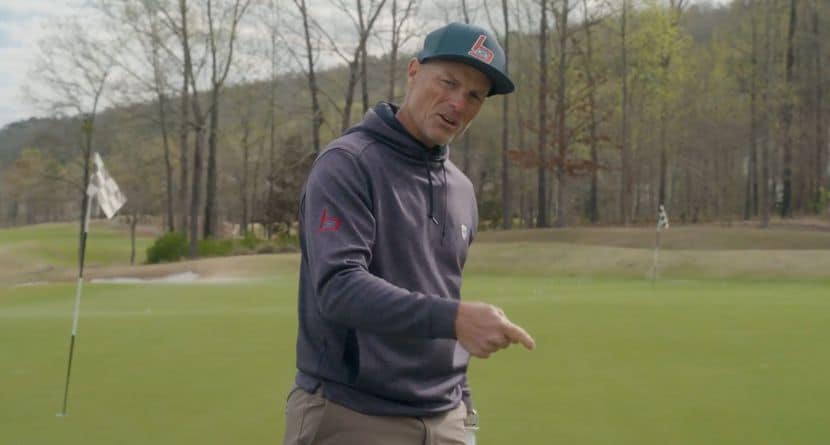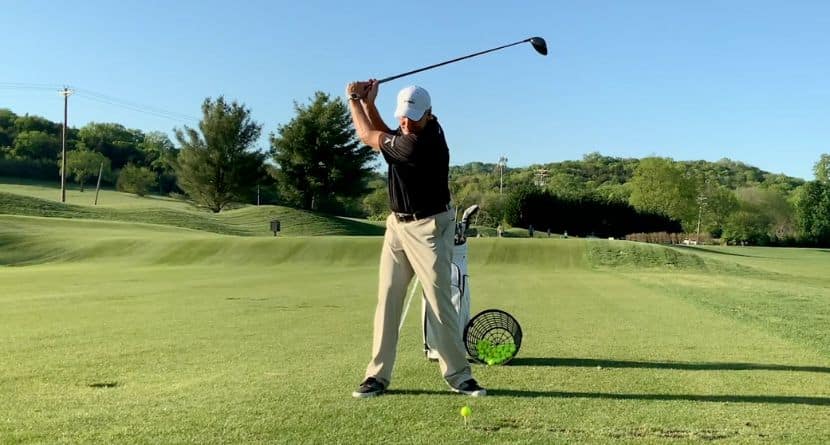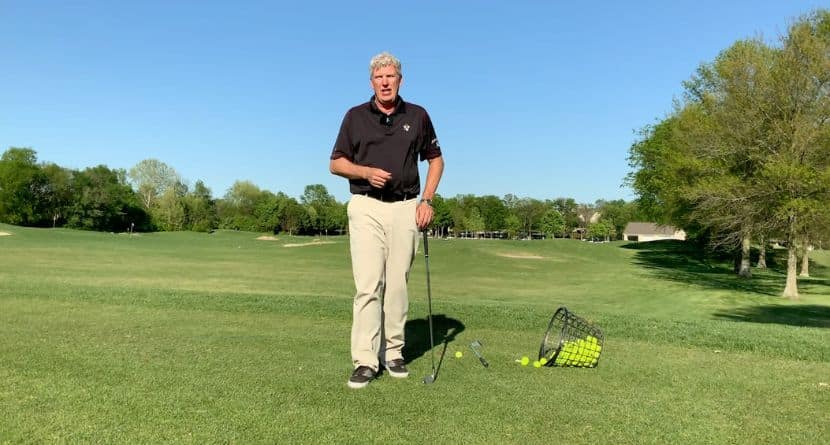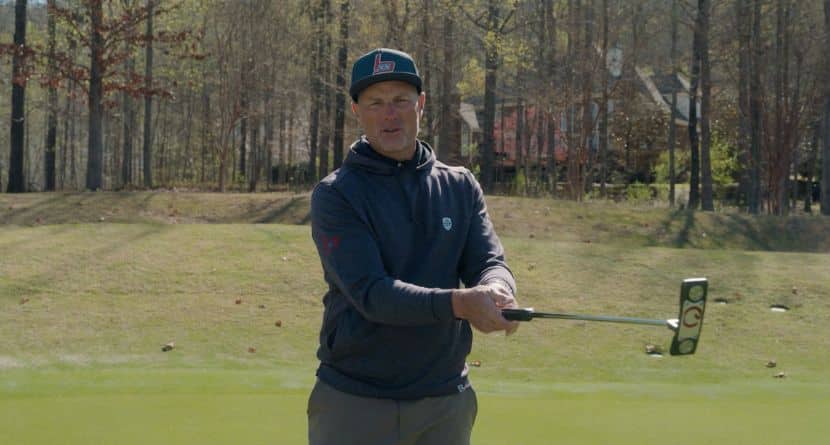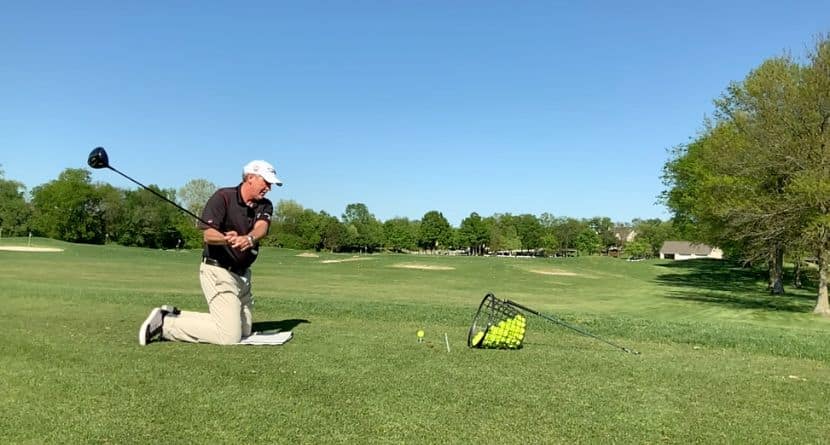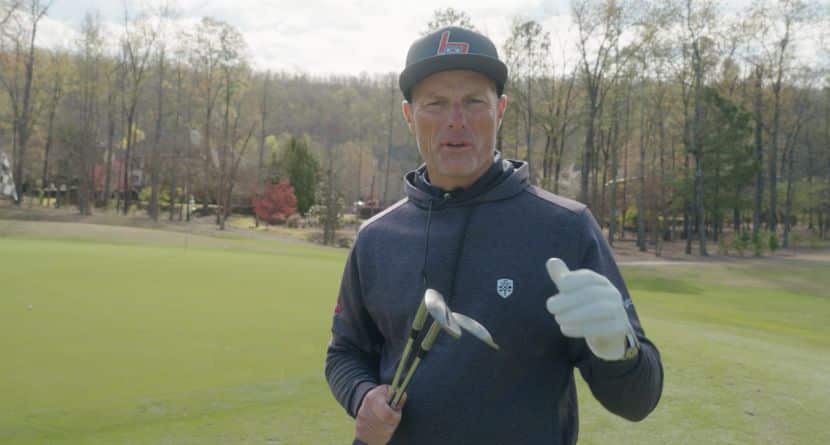It’s hard to believe, but it’s that time of year again: best of the year list season is upon us. With fewer than 10 Tiger Tuesdays remaining before Christmas, we’re counting down Tiger Woods’ 10 best shots of the year and how you can implement his shot types into your own game with PGA Professional and SwingU instructor Aaron Ungvarsky’s help.
We have arrived at the top shot from Tiger Woods in 2018. Woods admitted his bunker shot from the 10th hole at Carnoustie during the final round of the Open Championship was the most impressive from his comeback season and although he did not capture a major, this shot kept him in the hunt during the final round.
“The shot I hit down 10 at the Open Championship out of that bunker, I thought that, ‘This is the tournament. I win the Open Championship or I lose the Open Championship on this shot.’” Woods said of the shot at the Hero World Challenge earlier this month. “If it clips the bunker, I lose. If it comes out, I’m going to go ahead and win this thing. You saw the speed I put into it and the shot I hit. To be able to pull that off knowing that I hadn’t done this for a very long time and this is the moment, that gave me a lot of confidence going forward.”
Vintage Tiger? Vintage Tiger ?#TheOpen pic.twitter.com/lmbTfMEYXe
— Golf Channel (@GolfChannel) July 22, 2018
On the 10th hole at Carnoustie, Tiger’s tee shot found the bunker, a true hazard given the steepness of the face. While most were forced most to play out sideways and fight for par, Tiger saw an opportunity. His ball was back far enough from the sod wall where he figured hoisting the ball over and carrying a cross hazard would be possible, setting up a run at a birdie and getting closer to another Open Championship victory.
In watching Tiger execute this shot, there are two keys swing factors that allow him to pull it off, and can help you escape from a similar situation.
The first is the quiet lower body and minimal hip turn. Many amateurs, especially when facing a difficult shot that requires above average clubhead speed, will involve the lower body to a point where it becomes a detriment to the overall swing motion. Notice how Woods’ feet are firmly planted in the sand and his lower body barely disrupts the surface of the bunker as he makes the backswing.
A stable foundation allows the upper body to generate leverage and drive all the power for the swing. Because his hips are not turning back fully he is able to restrict the lower body motion and eliminate the chance of losing his footing or hitting too far behind the ball.
The next element of this shot that deviates from a standard swing, but is necessary for this situation is the impact and finish position. Most shots will allow the player to transition pressure laterally towards the target, opening the hips and favoring the lead side through the hitting zone. The normal body movements cannot happen when trying to maximize loft from a fairway bunker. Because this is a scenario where hitting down behind and into the ball will not work, we need to pick and lift.
The pick comes from a wide stance and takeaway, with full arm extension going back. The lift will come because the attack angle is shallow and weight is still kept on the trail side, with the spine tilting back away from the target slightly.
With Tiger releasing the club with a bend in his upper body behind the ball, the low point is at or slightly behind the bottom of the ball, and now he can pick it clean and swing to a high finish. Just watch as the arms and hands follow the ball straight up. Very different than his normal swing pattern that has the arms following the club more to the left as the ball travels straight down the target line.
To hoist it like Tiger, remember to keep the lower body quiet and tilt your spine away from the target slightly. Do not look to transition pressure to the lead side as aggressively as normal and picking the ball is perfect.
High hands and hitting sand after the ball (if at all) will let you know you have nailed it perfectly, and if you find yourself anchored on your back leg or falling back slightly, that is okay too. The most important part is hitting a solid shot that clears the steep bunker face.
As for carrying it 150 yards over another hazard in the final round of a major, you most likely won’t have to worry about that.

